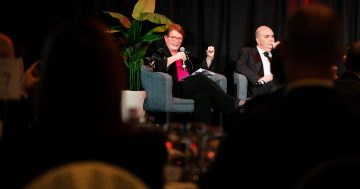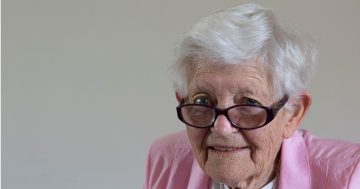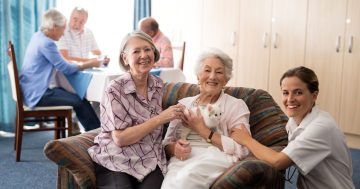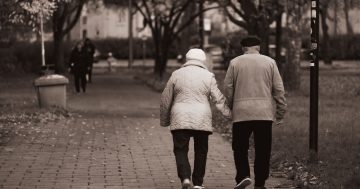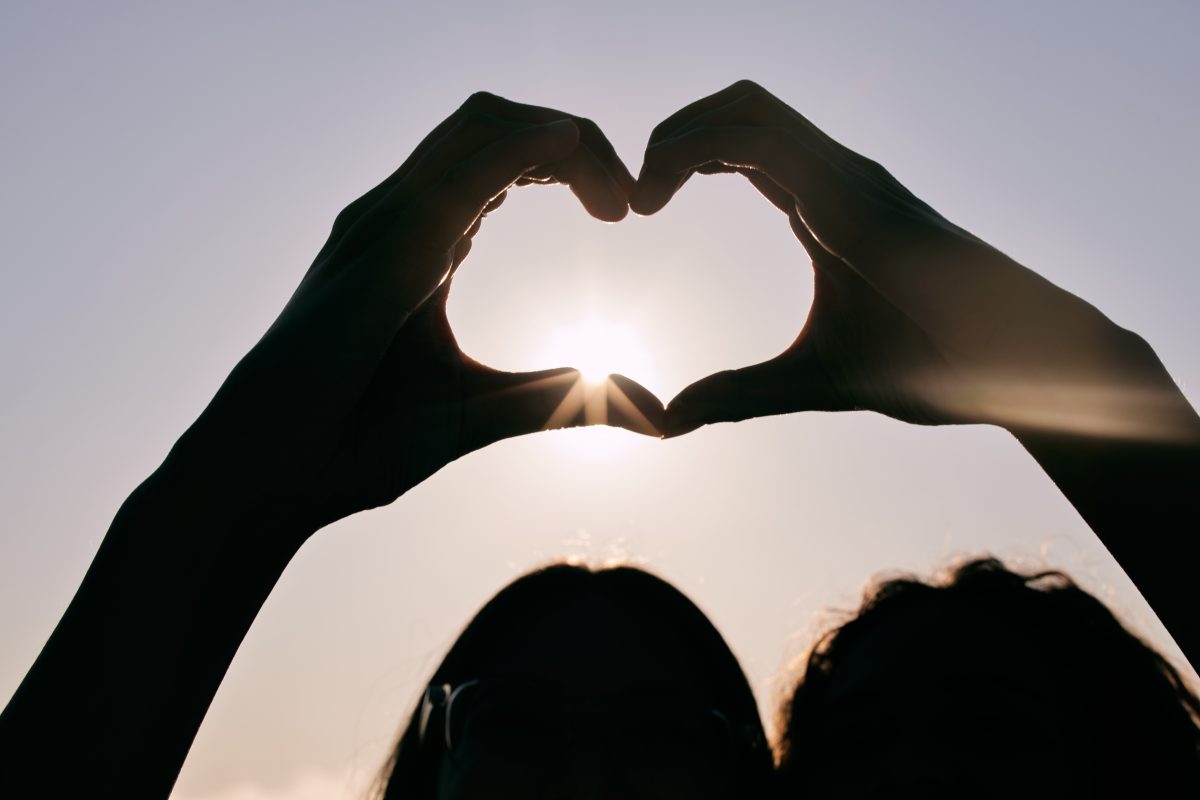
Close friends are good for your health and your heart. Photo: YuriArcursPeopleimages.
Friends. Where would we be without them?
I finally caught up with a girlfriend this week for the first time since last year’s Melbourne Cup outing.
We tried to meet up for a pre-Christmas drink but life got in the way, as it did again when we promised to see each other before the end of the year.
Regardless of how long it might be between drinks, we just pick up where we left off. And despite what might be happening in our busy lives, we know we’re always there for each other – a sister-in-wine as my lovely friend describes us.
Friends drop in and out of your life as circumstances change and time marches on. Old friends disappear as new friendships are made, some fleeting, some lasting.
I don’t have any friends from school in my life (yes, it was a long time ago), unlike No. 1 Favourite Son, who until recently shared a flat with a schoolmate, more than a decade after they left school.
My family moved around a bit as a kid so although I made friends in each place, I hadn’t grown up with them and once we moved on, most of the friendships ended too.
The husband and I moved to Wollongong not knowing a soul, but between work and sport we soon expanded our social circle.
The friends we met then are (mostly) still part of our lives now, more than three decades later.
The relationships have changed – some are divorced, single, remarried; most of them are now grandparents, while we’re still hoping – and we don’t see each other often, but the connection is still there.
Having kids opens you up to a whole new friendship group. As your kids grow and take up new interests, whether it be sport, music, dance, art or whatever, you meet new people. Some may just pass through your life, while others, like my sister-in-wine, become lifelong friends.
According to Relationships NSW, a 2019 study found that Australians have on average 3.3 “best friends” at the core of our friendship circle.
The circle then extends out to those who are valued but not so close, with acquaintances on the outer edge.
Good friends are good for your health. Research shows that strong friendships promote health, enhance longevity, protect brain health as we age, fight disease and depression, and speed recovery from illnesses.
In contrast, the organisation says, social isolation is associated with a 50 per cent increased risk of dementia and an increased risk of premature death from all causes that can rival the risks of smoking, obesity and physical inactivity.
Like many women of our age, my friend and I have proudly watched our kids grow up and make their own way in life. She’s been the mother of the groom twice and welcomed cherished grandchildren into the world.
At a time when we could be celebrating our independence and enjoying all that we have worked for and achieved, we are both caring for ageing parents.
It’s not a burden; after all, they have been caring for us all of their lives.
But it’s so bloody hard to see your once fiercely independent, intelligent and healthy parent suffering from the afflictions of old age. And knowing there’s damn little you can do about it, apart from draw on the strength of warrior women and do battle with the system to ensure they get the best care, support and attention they deserve.
When we finally caught up for that long overdue drink this week, my friend and I shared and compared stories about our parents and navigating a system that, on the surface, aims to help people with addled minds and failing bodies – as long as they have fierce advocates like us to get that help.
She shared wise advice that she has learnt from her dealings with the health and aged care system. She listened with compassion and love as I vented and shed tears of frustration and sadness for the woman who gave birth to me and helped shape me into the person I am today.
The help is there, don’t get me wrong, but determining what you need and how to get it is draining and frustrating. A referral code for social support? Sorry, that’s not included in her plan, she’ll need another assessment. But she was assessed for the first time last week. Nope, need another assessment.
The referral was to a centre where people with dementia can get out of the house, socialise, exercise both physically and mentally and limit the social isolation that can come with failing mental health.
Mum is even less of an Illawarra local than me, so she hasn’t built those close, strong friendships formed over years of living, working and playing in a community.
Her family is her main social group but we’re all working, so we need to find opportunities for her to get out of the house, meet other people and to keep her mind as active as possible – while making sure she feels comfortable and supported.
It’s times like now that I really wish Mum had a friend like I do. A friend who laughs with you, cries with you, who’ll rally for you and support you when times are tough. A friend who celebrates the good times with you and provides strength when you suffer the losses.
Because everyone needs a best friend – or 3.3 of them.











